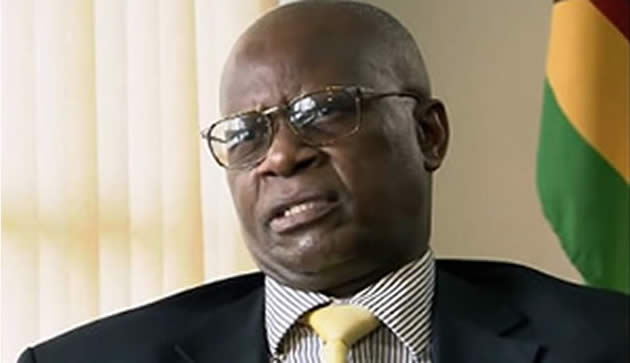Binga fishing co-operative chokes on loan repayments

 Arnold Mutemi Features Editor
Arnold Mutemi Features Editor
A YOUTH empowerment programme targeted at youth co-operatives in Binga promises to transform lives in the remote district although it could be sometime before members start reaping direct financial rewards.At face value, members of Bacikula Kapenta Fishing Co-operative seem to have struck it rich after getting a $26,000 loan to start the fishing project.
The previously unemployed and marginalised youths from Binga came together and formed the co-operative after hearing of a fund created to help youths with income generating projects as part of the Zimbabwe Agenda for Sustainable Social and Economic Transformation(Zim-Asset).
CABS bought them a kapenta fishing rig and, through the same loan facility, provided essentials needed to kick start the project.
There is little doubt that money is rolling in. Kapenta fishing is known to be a lucrative business as demand for the protein rich but affordable small fish is high.
From what the youths say, in a 14-day fishing cycle, they can bring in 14 bags of kapenta with a retail value of $2,100. In a month, they gross about $4,200.
For formerly jobless youth with no regular source of income, this is no small fortune.
They have no problem selling their catch. They have established contact with one businessman who comes and buys all their kapenta once it is ready for the market.
But sadly, none of that money is finding its way into the youths’ pockets.
Since the fishing project started last November, members have not shared any cash dividend.
Instead all their revenue is being gobbled by loan repayments and meeting other statutory obligations such as kapenta fishing permits and levies due to the local authority.
The co-operative has been religiously paying $1,300 a month towards servicing the CABS loan making it one of the few co-operatives that have not defaulted on loan repayments.
Bacikula Co-operative was one of the two youth groups in Binga which received funding from CABS to start fishing projects. The other one was Tutambule.
According to CABS, 78 percent of youths given the empowerment loans are defaulting.
The financial institution set up a $10 million Youth Fund to help empower youths.
More than 3,600 youths have received loans from the CABS fund out of the 22,000 applications.
Apart from loans repayment, the co-operative has to pay $650 dollars quarterly to the Zimbabwe Parks and Wildlife Management Authority to be able to fish in Lake Kariba.
A member of the co-operative Lackson Mugande said while the project had potential to transform their lives, there were paying a lot to meet various financial obligations, leaving them with nothing to sustain their families.
As things stand, the only remuneration co-operative members are getting are kapenta rations.
Mugande said CABS should reconsider reviewing downwards the loans repayment so that they are left with some money to share among themselves.
He said during the first days, their operational costs were low as CABS also provided diesel, salt for processing fish, trays and life jackets.
These days they have to buy their own.
The co-operative’s treasurer Plate Mpande said the loan would be repaid over a two–year period and he sees things improving for the co-operative once the $26,000 loan is paid up.
“Things will be okay once we finish the loan. Our life has changed a bit but the problem now is most of the money is going to costs,” he said.
Winter has also not helped their project either. The cold weather has seen the amount of catch falling drastically.
This forced the co-operative to fish even when there is a full moon, a time when most fishing rigs are moored, because fish don’t bite when the night is almost as bright as day.
In winter, the catch can drop to as low as seven bags or even five if the rig suffers a breakdown.
However, co-operative members have been lucky as they have not experienced a breakdown so far.
Despite not getting liquid cash from the project, Mugande said the youth empowerment project had improved his life on a personal level.
He said he had stocked the kapenta rations they shared and engaged people back in his village to grow maize on a piece of land, something he could never had achieved on his own.
“I used my matemba (kapenta) to have the fields prepared and I had a good harvest this year. I harvested two tonnes which I had never done before,” said Mugande.
He said government should continue with its empowerment programmes for youths as it was the only way to reduce poverty.
Another member, Julian Nyathi, who is one of the nine women in the co-operative, said the 17 members of the co-operative had divided themselves into four groups and each group worked for two weeks in the dam before taking a rest and giving the next group a chance.
She said kapenta fishing was lucrative.
“There is money in fishing. If only they can give us another boat,” she said.
She said to ensure good governance, the co-operative had set up a management committee comprising chairman, treasurer and secretary.
Questions sent to Old Mutual, parent company of CABS, last month on whether its loan repayment terms were not favourable to youths hence the high default rate had not been responded to at the time of writing this feature.











Comments